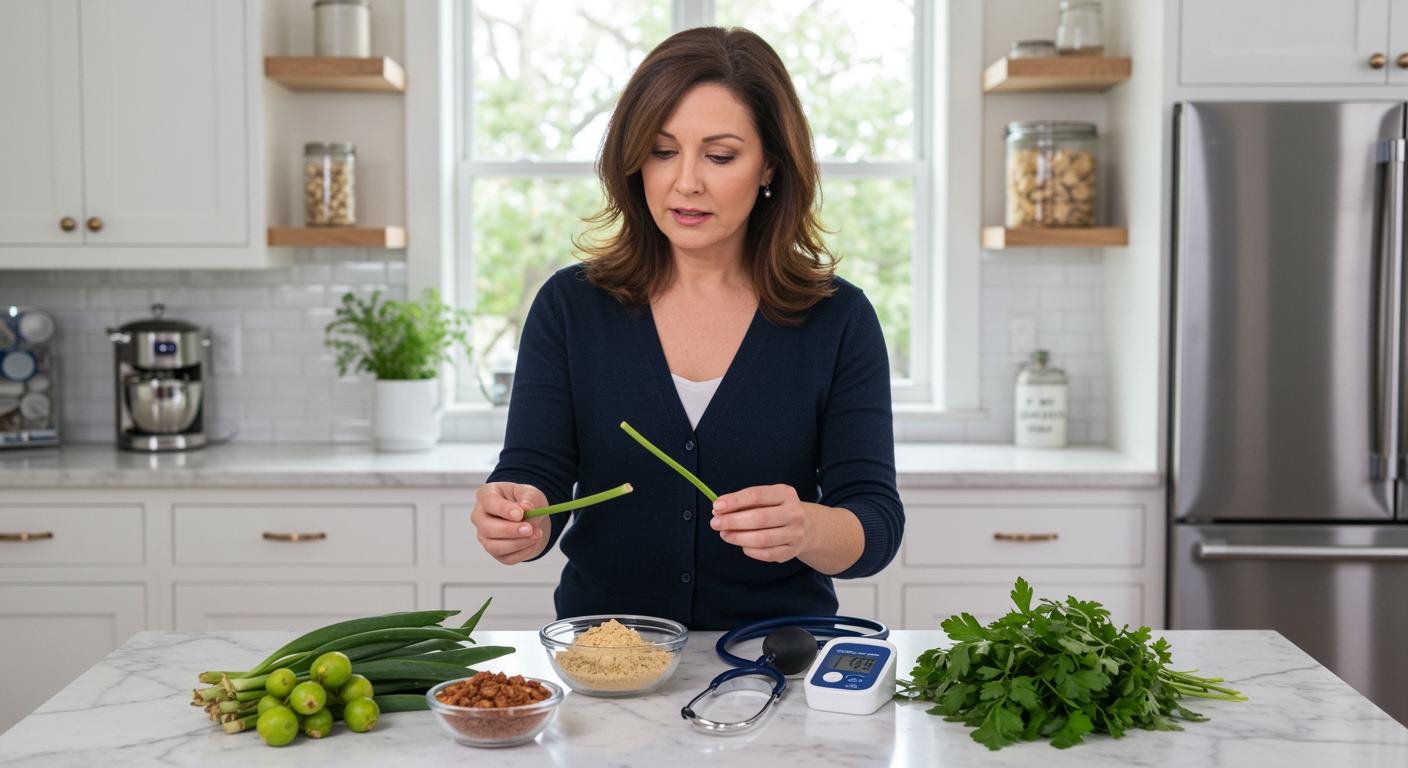✪ Key Takeaway: Giloy can lower blood pressure further, making it potentially dangerous for people with hypotension.
Introduction
Your blood pressure monitor shows numbers like 90/60 mmHg and you feel dizzy when you stand up.
You might be wondering if giloy, the popular Ayurvedic herb, can help boost your low blood pressure naturally.
Hi, I’m Abdur, your nutrition coach and today I’m going to explain whether giloy is safe for low blood pressure and what you need to know before using it.
How Does Giloy Affect Blood Pressure?
Giloy contains bioactive compounds that can actually lower your blood pressure even more.
The herb works by relaxing blood vessels and reducing the resistance in your arteries.
This mechanism helps people with high blood pressure, but it creates problems for those with hypotension.
Research shows that giloy can reduce both systolic and diastolic blood pressure readings by 10-15 mmHg in some people.
When your blood pressure is already low, this additional drop can cause dangerous symptoms like fainting, confusion, and organ damage.
✪ Fact: Giloy can lower blood pressure within 2-3 hours of consumption in sensitive individuals.
What Are The Risks For Low Blood Pressure Patients?
Taking giloy with low blood pressure can trigger severe hypotensive episodes that require emergency medical attention.
Your brain needs adequate blood flow to function properly, and dropping pressure further reduces oxygen delivery to vital organs.
Common dangerous symptoms include sudden dizziness, blurred vision, rapid heartbeat, and loss of consciousness.
Some people experience orthostatic hypotension, where blood pressure drops dramatically when changing positions from sitting to standing.
The combination of giloy with blood pressure medications creates an even more risky situation with unpredictable effects.
Elderly people and those with heart conditions face higher risks because their bodies cannot compensate quickly for sudden pressure drops.
✪ Note: Never combine giloy with blood pressure medications without medical supervision.
Are There Safe Alternatives For Low Blood Pressure?
Instead of giloy, focus on natural methods that can safely raise your blood pressure without dangerous side effects.
Increasing your salt intake moderately helps your body retain more fluid and boost blood volume.
Drinking more water throughout the day prevents dehydration, which commonly causes low blood pressure episodes.
Small, frequent meals prevent postprandial hypotension, where blood pressure drops after eating large meals.
Compression stockings help improve blood circulation from your legs back to your heart, maintaining better overall pressure.
Regular exercise strengthens your cardiovascular system and helps your body regulate blood pressure more effectively.
✪ Pro Tip: Stand up slowly and pause for a few seconds to let your blood pressure adjust naturally.
When Should You Consult A Doctor?
See your doctor immediately if you experience persistent symptoms like dizziness, fatigue, or fainting spells.
Your healthcare provider needs to identify the underlying cause of your low blood pressure before recommending any treatments.
Some conditions like heart problems, endocrine disorders, or medication side effects require specific medical interventions.
Never stop taking prescribed medications or start new supplements like giloy without professional guidance.
Regular monitoring helps track your blood pressure patterns and ensures any treatments are working safely and effectively.
✪ Fact: Blood pressure below 90/60 mmHg consistently requires medical evaluation and monitoring.
The Bottom Line
Giloy is not safe for people with low blood pressure because it can lower your readings even further and cause dangerous symptoms.
Your health is too precious to gamble with unproven remedies when safer alternatives exist.
I would love to hear about your experiences with managing low blood pressure naturally, so please share your thoughts and questions in the comments below.
References
At NutritionCrown, we use quality and credible sources to ensure our content is accurate and trustworthy. Below are the sources referenced in creating this article:
- PubMed Central: Tinospora cordifolia: A versatile medicinal plant
- Healthline: Giloy Benefits: Uses, Side Effects, and More
- Drugs.com: Tinospora – Uses, Side Effects, and More
- Pathkind Labs: Why Giloy is Called Nature’s Healer





